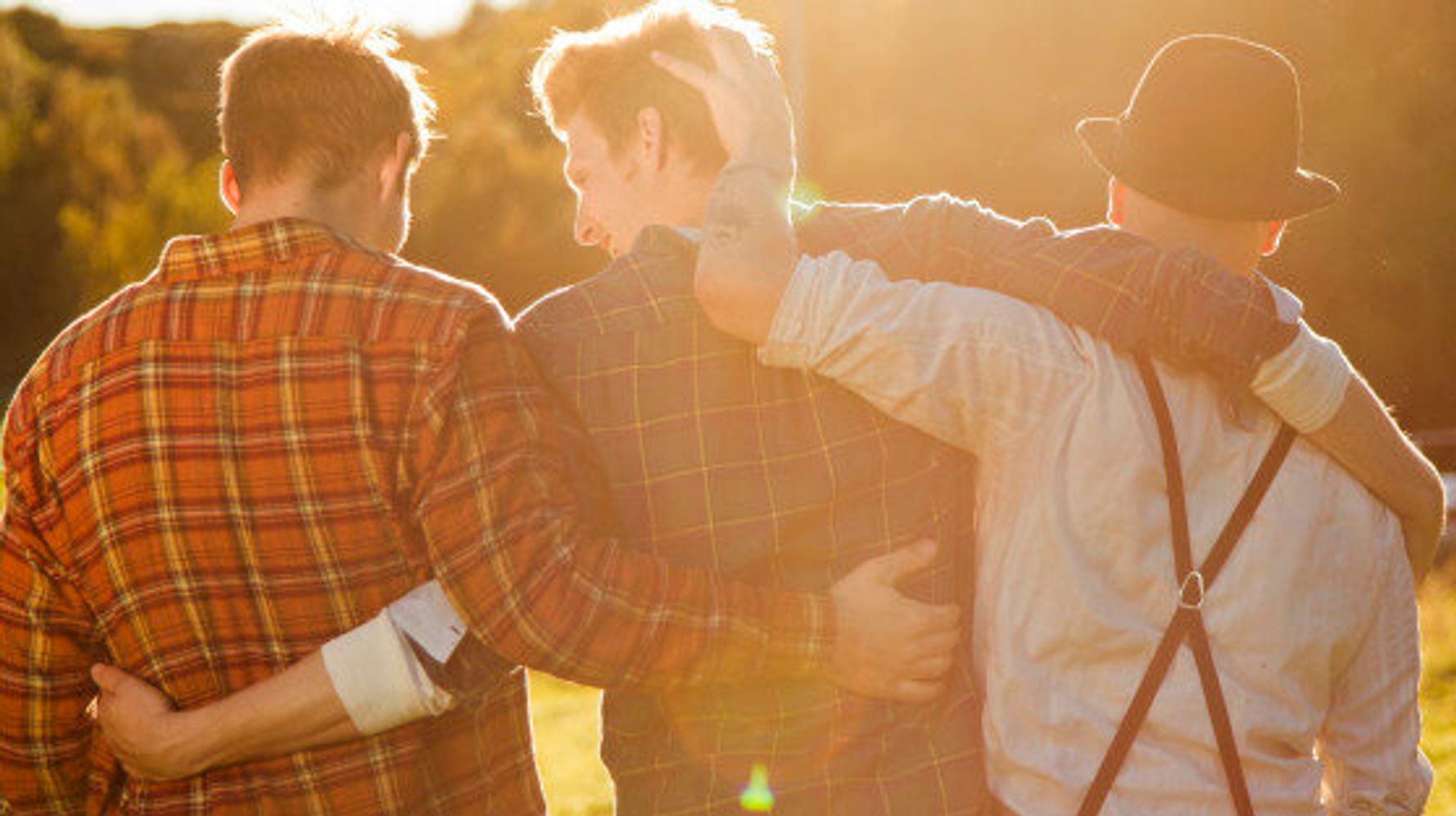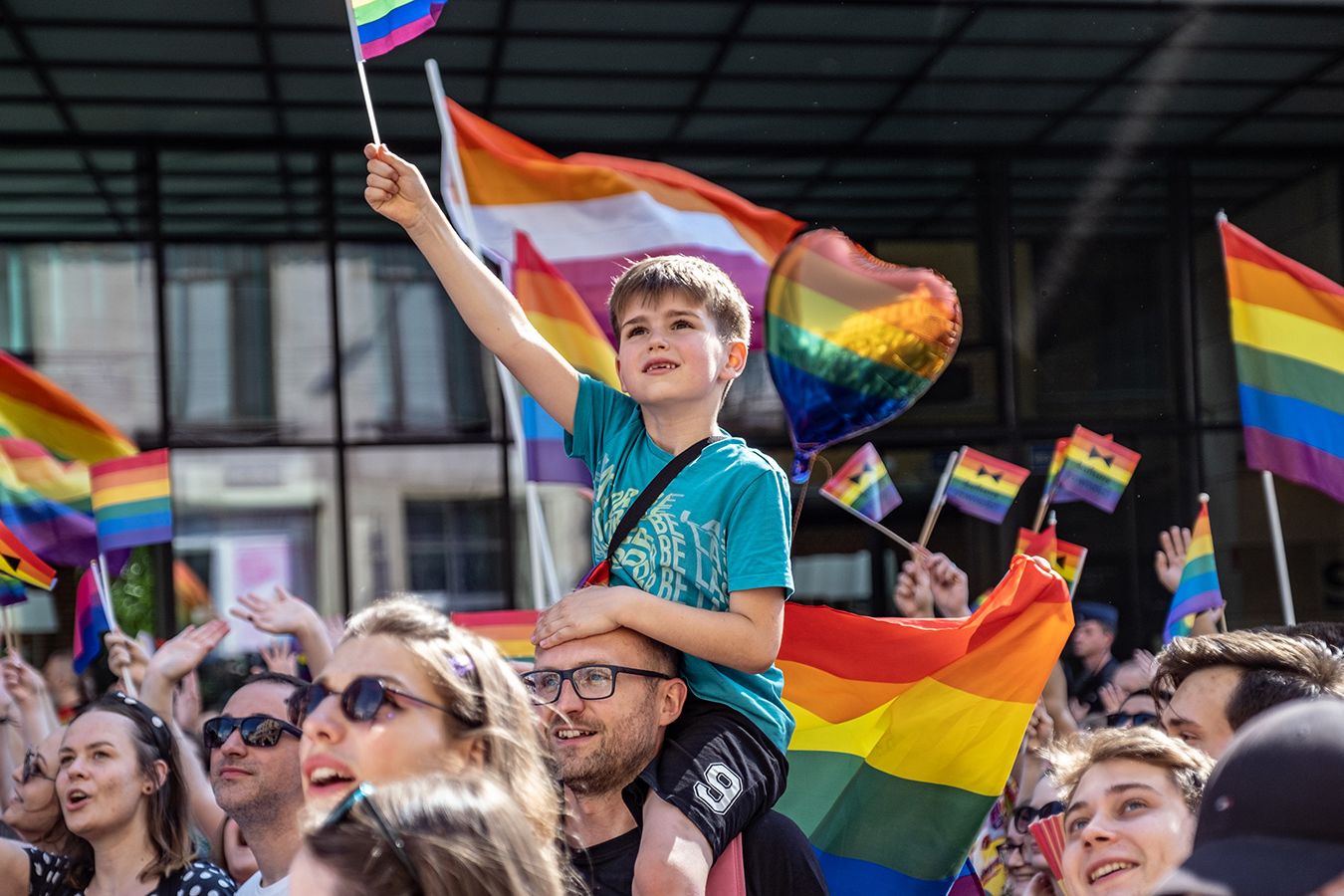By Evi Tsakali,
I met him a few days before joining the team of Offline Post (how coincidental), three years ago; since then, he has been present in my life, and in some of my articles. He has taught me many things about the LGBTQIAP+ community and has given me honest insights on the matter that I am not certain I would get otherwise. Thus, it was only natural that I would think of him now, as the Editor in Chief of the English Edition, when I decided to dedicate the column’s monthly theme to Pride Month; and to give him the floor to express, in an unfiltered manner, his thoughts on gayness, the queer community, and living and falling in love within it. But as I promised, I will yield the floor to him…
- Do you think that there is discrimination within the gay community? Have you found differences between the cases of Greece and France?
There is discrimination within the gay community; I mean, we are talking about a group of people. When there is a group of people there are always differences and -hence- there is a tendency towards discrimination; as there is a tendency in the general population there is also for the gay community. However, and I would like to point that out, there is also a kind of more “specific” type of discrimination, proper to the gay community; this kind of discrimination has multiple facades, but it can be summarized in just the negative side of the pretty privilege, meaning that within a highly competitive environment — in terms that the gay community is not only associated with protests and reclamations/struggles/combat for rights but is also a place for dating, the major dating pool for queer people, and appearance matters. Dating apps and social networks have worsened things. Maybe it is an unpopular opinion, but I must say that — in this particular aspect of the gay community, there is a kind of aversion towards whoever does not abide by the pretty privilege, hence the de facto discrimination.
There is factual discrimination in terms of body shape, especially for people who are not that fit or do not match a specific category; The fact that some people with a bit of extra weight may fit in the “bear” category, does not mean that overweight people are actually accepted within the community and can indeed make friends or find their match. There is also an uncommon, undisclosed case of racism, that consists of fetishizing certain ethnic groups, like people that are exclusively interested in Asians, and thus won’t date — or even socialize with — people that do not belong in this group. There are also people who prefer more feminine men, or — on the contrary — more “macho” men, and there is clearly some homophobia there; there are lots of people within the community who do not like femininity or approve of it.
Some people reply “We are not that kind of gay”; that reminds me of a line from the series Grace and Frankie, where one of the two men of an elderly gay couple is hospitalized and the — clearly coded as gay and feminine — nurse is very glad to hear that they are gay and instantly becomes more chatty; when he proposes the game of drag bingo, one of the two elderly men refuses, saying “we are not that kind of gay, sorry”. French people have an expression for that, “hors milieu”, or “out of the community”. They are — in fact — part of the community, but they are distancing themselves from the community. This reaction is of course homophobic, it is an ugly side of the community but we have to admit it exists. There is also internalized homophobia, especially from people who have accepted themselves prima facie but in fact, they are not that comfortable with themselves or doing, or liking “gay stuff”. There is also kink-shaming or slut-shaming. Finally, inside the community we may find ageism; we must admit the gay community is associated with a lifestyle tailored to young men; a lot of partying, clubbing, protesting, and experimenting, and that is something that an older person, even if included in the community, would not be able to do.

- Has your entourage decreased in size since your coming out? How do you feel about the likelihood of some of the people closest to you not accepting you?
Personally, no, but I think I am an exception; I think that the entourage can be decreased, for some even their closest relatives cannot accept them, which is a common ground both in Greece and France from what I have seen. I was lucky to have an accepting group of friends and a very understanding family, and it would be a lie to say that I ever had this kind of problem. As far as the second part of the question is concerned, there is always this chance, it is a hard realization, but sometimes acceptance is different from love. There are people who love you deeply and dearly, but for some reason, they do not understand; some people may not accept you for some activities or personality traits of yours, sometimes even for things that you have not chosen, such as sexuality. This exists, and we should always fight for our rights, but we should also accept that there are some different views on an issue; it is the blessing and the curse of democracy; pluralism.
To answer the question more concretely, there are people that love you who may never accept you, be that even your closest friends, your mother, or your father. They might never accept that part of yours. If these people really love you — and you will know if there is true love behind their feelings and emotion — even if they cannot fully accept and support this part of yours, they can still love you; and as long as their love is genuine and not harmful, you can love them back. And it is okay. There is a point beyond which you can say – for your own mental health — that it is okay; this person can love me but just doesn’t agree with some parts of me. Sexuality is of course an important part, but I think that, fundamentally, this is what all people do; we do not agree in every single aspect, and there are some things in other people that annoy us and that we are not okay with, things we do not understand in them. So, I think that it is okay as long as there is no harm done — physical or mental — in the interaction among people. It may be a hard realization to make but I think that this is something that many gay people will eventually agree upon.

- How would you describe the dynamics of friendships with straight men?
This is a funny question. I must say — again, based on my personal experience — that straight people do not usually notice I am gay; not that it is written on our foreheads, but some people tend to be more expressive of their sexuality. Besides, I bring up the issue during a discussion matter-of-factly and in a very normalized way — which I think we should all be doing — but straight men are not always used to that extent of normalization. They may be more used to talking about women, whereas I will be talking about men, just like that (and out of the blue oftentimes). This may come as a shock, but I think that the more we normalize it, the more straight men get accustomed to it; first of all, they become accustomed to it, then they start feeling involved as if the community is inviting them, and thirdly they start normalizing it too, because they start understanding the issues we might have are not that different from theirs, so they eventually relate. I have had straight men giving me very good advice about my gay relationships or dating. I think that this creates an osmosis between the community and straight men, which is very constructive both for the gay community — to open up because the community also has stereotypes and reproduces them — and for straight people.
Hence, I urge gay people to not cut ties with their straight male friends just because they think they will not understand, but to give them and their relationship a chance, if there is, of course, a basis for understanding. Lots of gay people brag about having almost only female friends because they are the only ones who understand or are the best ones they can have… I think this is a fear of the rejection they think they will experience, and I think that we should not have this kind of “a priori” because it is holding us back.
Of course, sometimes when you hang out with straight men, it can get funny. For example when they say stuff that in the gay community would be considered stereotypically straight (silly stereotypes, but they still circulate), or they invite you to do a very “straight” activity. It is very funny and at the same time very nice, to get out of the comfort zone, for both sides. I think it is very productive and useful, for any kind of relationship, to do some personal development; and everyone can do, and needs to do some personal development. It is a constant process, and I think it would be useful for gay people to be less hostile and engage with straight people; and for straight men to try having (this is again from a show, Machos Alfa, about a group of men realizing their toxic masculinity and trying to escape it) a “gay friend”.
…and these were just a warmup; for more stay tuned for the part(s) to come!




